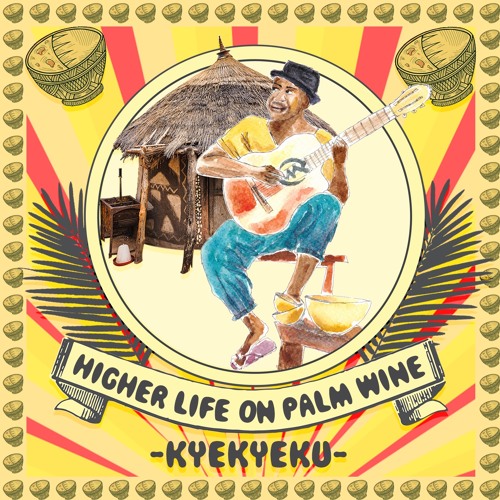Ghana is an inherently musical nation. In everything Ghanaians do, they seem to find ways to inject some musicality into it. By lubricating their daily tasks with music, like fisher folk hauling in their catch with pulsating songs that match the tenacity of the sea or trotro mates calling out for passengers in a metronomic rhythm, Ghanaians employ music to bind each other. In these communal exchanges, creativity brews and is encouraged. Indeed, it is from this vociferous oral tradition and knowledge system that the heartbeat of our modern musical sound, Highlife emerged.
Although Nigerians try to claim it, Highlife music, through all its various transformations has always remained authentically Ghanaian. It served as a medium of political protest against systems of oppression in the 60s and 70s. Immigrant Ghanaians in Germany in the late 70s and 80s found a way to combine it with the sparkly synths of the euro-electric scene to produce the glistening Burger Highlife. Budding guitarist Kyekyeku attempts to celebrate this mercurial yet endearing stylistic nature of highlife music on his album, Higher Life On Palmwine.

The 10 track LP released independently earlier this year is Kyekyeku’s debut album despite thriving on the live music scene in Accra for quite a while and cultivating a cult following. With mesmeric dexterity on the guitar, the singer digs deep within himself and his heritage to express his stories in ways that are not necessarily new. He draws mainly from Palmwine music, a less glamorous yet exciting tag for highlife music before it was restricted to the ballrooms by nouveau riche Ghanaians following independence as “highlife”. Agya Koo Nimo is one of the pioneering figures in this genre, which draws heavily from Akan oral traditional poetic patterns and folk call and response lyrical arrangements. Kyekyeku is a student of this tradition; having played with Agya Koo Nimo and his music exudes a similar depth of strong telling.
From the first song Pay Me Friday, Higher Life on Palmwine is immediately refreshing. Reminiscent of E.T Mensah’s swinging 1950’s big band approach to highlife, Kyekyeku brings tingling guitar chords and patient percussion loops in a slightly upbeat manner as he sings in pidgin English of the ever-complex socio-economic situation in Ghana. This song sets a tone for the tape and you expect the rest of the music to be a throwback to a very period specific sound. However, Kyekyeku does not seek to replicate the old style entirely. He manages to etch his own interpretation of Highlife and Palmwine whilst incorporating contemporary Ghanaian music. His voice soars over the lulling guitaring on Ghana Filosofia, a song which blends modern and Latin guitar scales over throbbing Akan poetics and hushed samples of the whispering sea.
It is difficult to not enjoy Higher Life on Palmwine due to the myriad of emotions it evokes. On one level, it pays homage and honours the legacies of living legends like Ebo Taylor, Agya Koo Nimo and Nana Ampadu who shaped Highlife and influenced Hip life as well. Yet, simultaneously, it is transforming that period specific, groovy highlife by borrowing from other musical influence like Latin music, Afro Cuban soul and compelling the audience to examine it in a new light. The tape succeeds in permeating different age groups and cultures and appealing to a wide demographic due to how new it sounds to some and old to others.

Listening to Kyekyeku brings up the thought of American soul singer, Leon Bridges. Click your heels three times whilst listening to his song Lisa Sawyer and Sam Cooke will appear before your eyes. Leon Bridges is a magician of nostalgia and has rooted his career in that specific sound. Most of his critics point to how problematic this is because he is not only engaging the sound but the social conditions at that point that fostered the sound. Therefore, although he is making brilliant music to tremendous success, he cannot shake of how Sam Cooke-like he sounds or how his songs celebrate relationship that would have been abhorred in the time, in which they are set. Kyekyeku has the potential to suffer from this same critique by investing in the sound of the past but this album proves that he most certainly would not.

On Highlife on Palmwine, Kyekyeku exhibits a level of creativity that demonstrates why his sound is more than just mimetic. He is able to take from the tradition and reinvent to suit his personality and his world. Listening to the 45-minute tape and synchronizing into the groovyness of Kakra Kakra, a personal favourite, you recognize the need to respect the music of the past and draw from it to sculpt the future. It is hardly a matter of if we need old or new highlife music, but rather can it be presented in a way that we can enjoy?
Listen to the album below.
—
Written by Hakeem Adam
Album art by Isabel Abreu
Photo Credit: Artist’s website


2 Comments